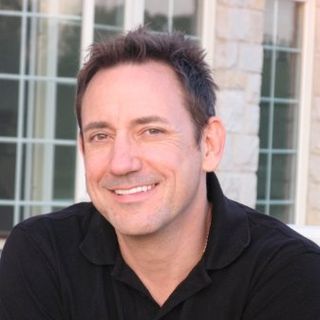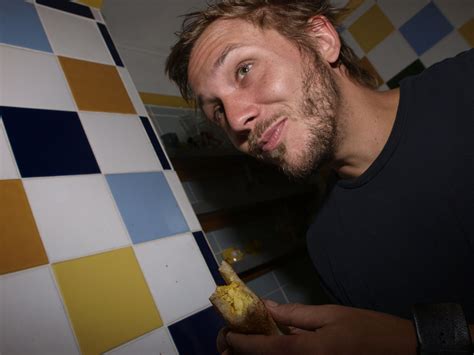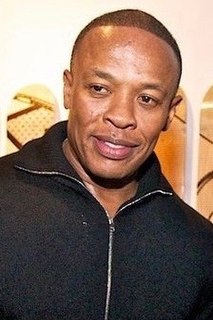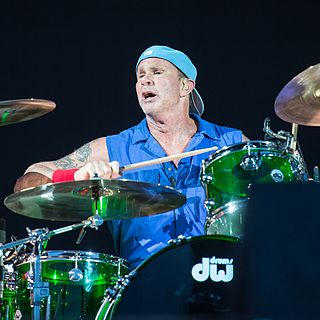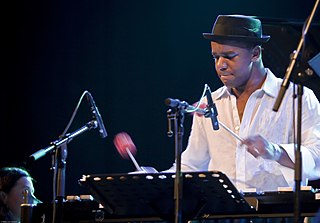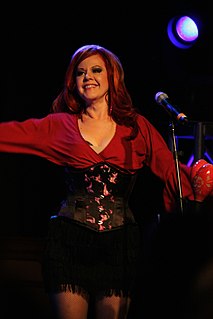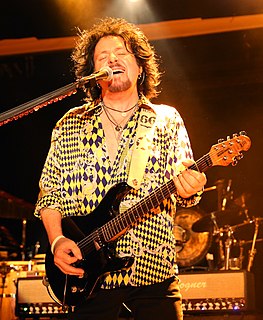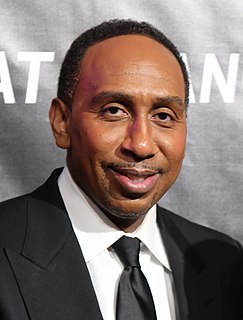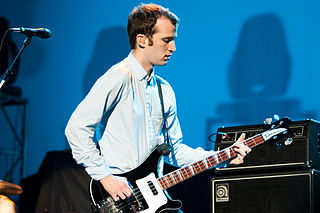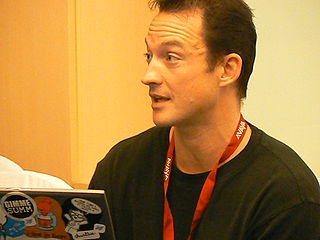A Quote by Jimmy Chamberlin
I think that the jazzy approach that I have is based on the way that I hear music and in the way I play a supporting role to the other people in the band.
Quote Topics
Related Quotes
It's hard to say. Whenever you play with a group of people for a long time it influences the way that you play with others. They were all very defining in their own way and all affected the band in one way or another. I don't think they are so obvious in the music. The fact is that The Lawrence Arms is the culmination of a long search of trying to find people who play well as a unit.
The way I look at music, what I'm interested in is not necessarily creativity - in many ways I think creativity is overrated, actually. What I think is important is authenticity. I want to hear music that has the resonance of the people. I want to hear music that is an amplification of them. Because then, I can experience the people. But because the music has become so institutionalized, everyone is learning and regurgitating the same material in the same way.
I like playing at public schools. I like when there's more of a diverse audience. I'll play wherever people want to hear my music, and I'll be glad and grateful for the opportunity, but I'd rather not play for a bunch of white privileged kids. I'm not meaning that in a disrespectful way; you go where people want to hear your music. So if that's where people want to hear me play, I'm glad to play for them. But I'd rather play for an audience where half of them were not into it than one where all of them were pretending to be into it, for fear of being uncultured.
I hope our legacy will be enduring and that people think of us as an important band. But I think Ricky's guitar playing, our style of writing, the fact that we had men and women in the band and gay and straight, I think it's an important band, and the way we wrote by jamming, we really had a different approach.
Cognitive therapy is based on the idea that when you change the way you think, you can change the way you feel and behave. In other words, if we can learn to think about other people in a more positive and realistic way, it will be far easier to resolve conflicts and develop rewarding personal and professional relationships.
I've been getting really into mixing, and there's kinda like an art to it I think. I feel like I still have a lot of ways to grow. But you can just watch the way that other people blend songs together, and it can be a pretty mind-blowing thing. And you can hear music in a very different way, depending on the way a DJ presents it.
I think actually any morality system that rewards only the extremes is a flawed system. Players don't approach life that way, they don't approach games that way, and they shouldn't be trained to approach games that way. They shouldn't be in the mode where, "I've got to choose every good option." They should just play the game. And they should get equal consequences or rewards for that, that are different from the extremes.
